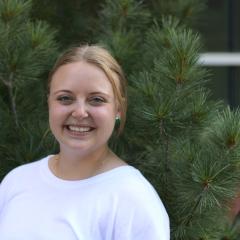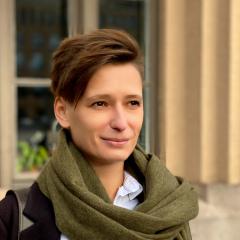

Applying for the Fulbright
I learned early in my academic career that when my major professor, Dr. Danielle Dennis, suggests something, it means I should say “yes” unless I have a good excuse otherwise. So when I received an email from her that said I should attend my university’s Fulbright information session, I knew I needed to follow through, and a short month later I found myself writing my Fulbright application.
In my mind, Fulbrighters were people with strong traditional education backgrounds who also attended top university programs. I wondered how I, a high-school dropout and community college graduate, could even consider applying for a Fulbright. But Dr. Dennis had never led me astray, so I agreed to apply.
I wrote my application already feeling like an imposter amongst other Fulbright applicants. I knew I wanted to complete research in Finland, so I scoured the Fulbright Finland website for insights into how I might appeal to the needs of the foundation as well as Finnish culture and policy. I felt like I had a lot to offer with my research topic and eagerness to serve as a cultural ambassador, but I felt I had even more to make up for due to my lack of strong educational background.
I remember struggling with writing my personal statement. I wanted to come across as polished, accomplished, and academic. My university’s Fulbright program advisor suggested I take a more personal approach. I felt a bit lost and nervous because I was certain I was not what Fulbright Finland would be looking for in a grantee. I don’t have the pedigree. But I took a risk with my second draft and wrote a deeply raw and honest personal statement.
I began by listing everything I felt was a flaw about me personally and academically. I figured I might as well just let the reviewers and foundation members know everything upfront and try to use these aspects of my past as sources of determination and strength. Regardless of how I viewed these attributes, I was still certain my application would be removed from consideration with these first few lines.
Even after I learned I was a semi-finalist, received and completed an interview, and then received notification I had received the Fulbright U.S. Student grant, a layer of imposter-syndrome stayed with me. What would happen when the Fulbright Finland Foundation team met me and discovered they’d let someone so unnoteworthy into this prestigious group of students and scholars?
A Warm Finnish Welcome
However, the moment I landed in Finland and met the team responsible for me being selected, I knew I belonged.
The Fulbright Finland Foundation team welcomes diverse stories and backgrounds. They celebrate our unique differences and journeys that have led us here. In only six short weeks I have felt like my struggles and alternative educational paths are not hindrances to my success, but instead - they’re why I’m here. I, along with all of the other grantees, bring a unique lens to the Finnish Fulbright experience and it is this assemblage of experiences and identities that make the Fulbright experience what it is.
It’s Your Turn
Who is a Fulbright Finland grantee? I am. And you are too. If you’re reading this, you’re already halfway there. There are many perceptions of what makes a good Fulbright applicant, but in my experience, it comes down to authenticity, a passion for your topic, and a receptive disposition for new experiences and cultures. It’s not about having the best test scores or academic record. In fact, the resilience developed through a turbulent or non-traditional educational background might actually provide you with the exact qualities needed to be a successful Fulbright grantee.
The Fulbright Finland Foundation celebrates diversity and values divergent experiences. Their grantees reflect that. I have found such a community of support in my fellow grantees and in the Foundation itself. I hope you’ll join us!


